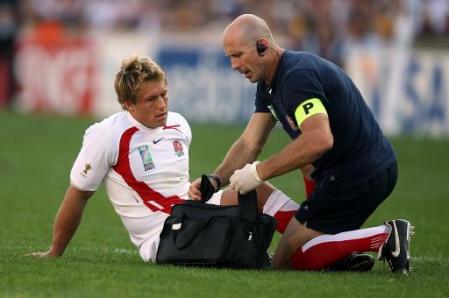News
Psychological Rehabilitation in a Successful Return after Sport Injury

There has been a drastic increase in the instance of sports injury. This increase is partially due to an increase in participation, but there is also an increase in the proportion of athletes that are getting injured.1 As a result, there has been a lot of research about the physical and psychological factors that influence an athlete’s successful return to sport. The return to sports model suggests that an athlete’s ability to pass successfully from one stage to the next in their return to competition is contingent upon physical elements, such as the injury healing and physical conditioning, as well as psychological rehabilitation.
What does mental recovery look like for an injured athlete? The research suggests that are several critical psychological factors that are affected during recovery. First and foremost, injury is usually a very stressful emotional experience and it is common for athletes to experience feelings of deep sadness, anxiety, confusion, tension, hostility, tiredness, and, sometimes, persisting sadness that reach levels of clinical depression.2 The notion that depression is fairly prevalent in athletes post-injury is supported by many studies, which generally show that approximately 10% to 20% of injured athletes experience extreme responses to injury, particularly depression, at intensities that surpass levels usually recommended for clinical referral.3
Second, an athlete’s identity is at risk after an injury. Imagine that a person who is used to identifying as an ‘athlete’ and participating in sports/exercise on a daily basis is suddenly labeled ‘injured’ and unable to exercise for weeks or months. Disturbances to identity can also affect an athlete’s feelings of self-worth. Self-worth is usually attained through three basic needs: (1) the need to feel competent, (2) the need to experience achievements, and (3) the need to feel accepted.4 An injury prevents athletes from feeling confident, experiencing success in sports, and feeling connected and accepted by their teams.
Finally, it is common that an athlete experiences fear of re-injury; 13% think about it during rehabilitation, and 40% upon return to sport. Fear of re-injury can present itself in flashbacks to the occasion on which the injury occurred or when an athlete believes that re-injury is likely to happen upon returning to the sport. Alternatively, this fear can manifest itself in feelings of anxiety surrounding the sports experience. Fear of re-injury is often a reason why many athletes never return to their sport.5
It is important to note that although several factors play into the psychological recovery experience, an athlete’s cognitive appraisal (or interpretation) of the injury and rehabilitation experience have a huge impact on the emotional and behavioral response to the injury and recovery. Psychological intervention, like counseling, can decrease the distress throughout recovery as well as facilitate a healthy and fruitful return to sport.
By Laura Kirschner M.Ed.

